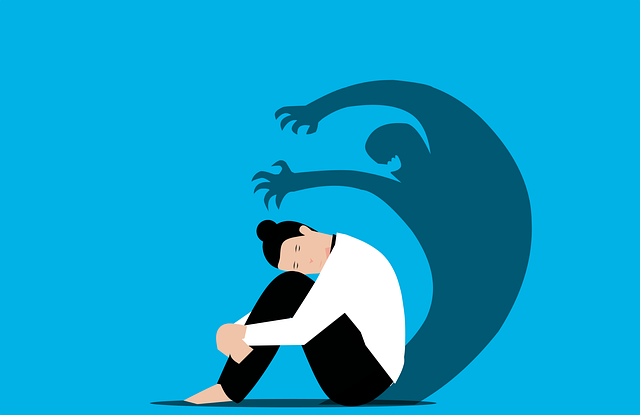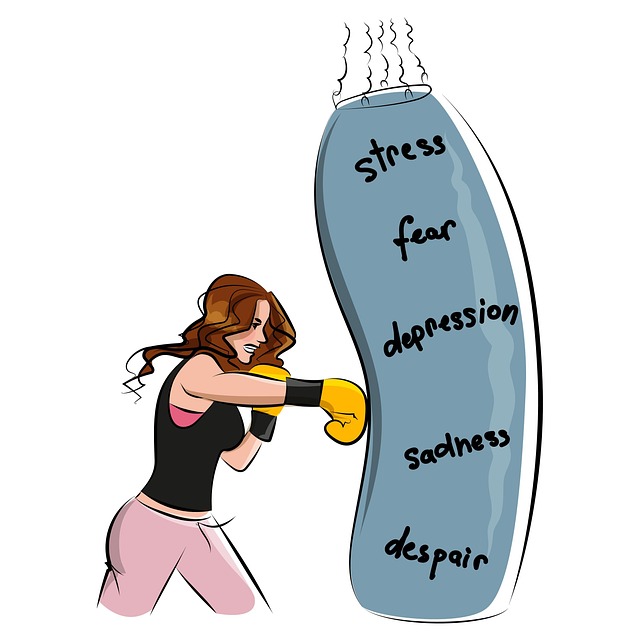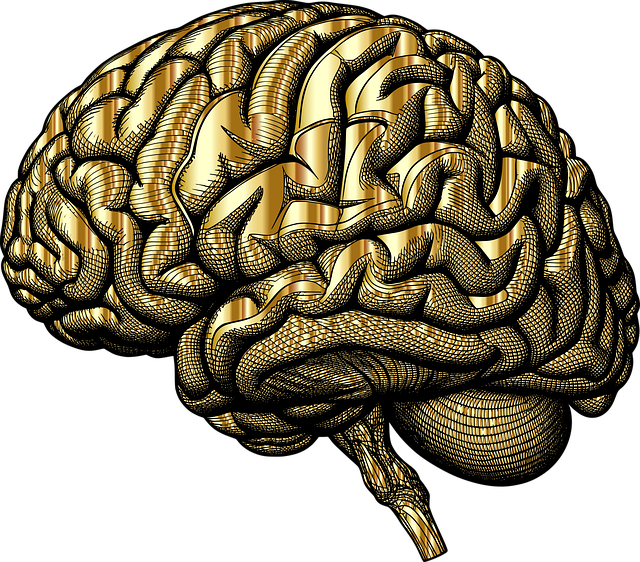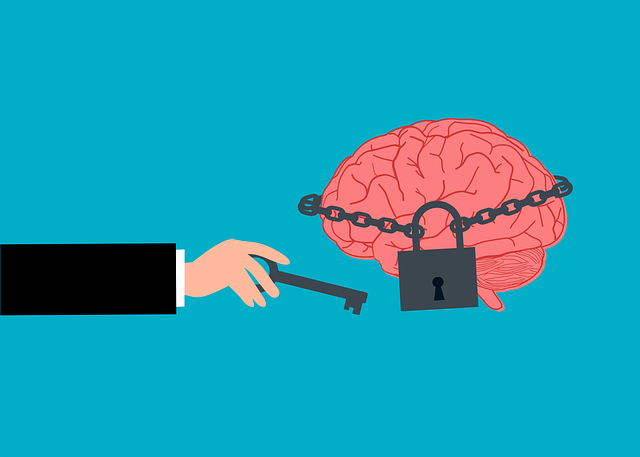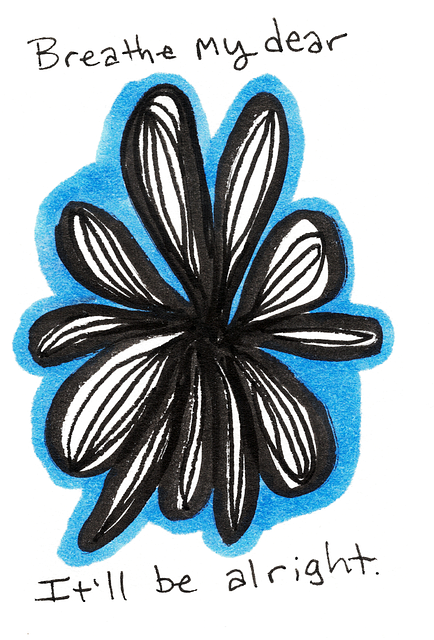Louisville Dissociative Disorder Therapy offers comprehensive strategies for managing intense emotions, focusing on trigger recognition, healthy coping mechanisms, and resilience-building mindset shifts. This includes stress management workshops, compassion cultivation, cognitive restructuring, and mindfulness meditation. By integrating these techniques into daily routines, individuals can effectively regulate emotions, reduce dissociative episodes, and achieve better mental balance, leading to improved well-being.
Emotion regulation techniques are essential tools for maintaining mental health and overall wellbeing, especially for those dealing with conditions like Louisville Dissociative Disorder. This comprehensive guide explores various strategies, from identifying triggers and cognitive reframing to mindfulness practices and building resilience. Understanding emotion regulation isn’t just about managing symptoms; it’s a journey towards mastering one’s emotional landscape, fostering stability, and enhancing quality of life.
- Understanding Emotion Regulation and Its Significance
- Identifying Triggers and Patterns: A Step Towards Louisville Dissociative Disorder Therapy
- Cognitive Strategies for Managing Emotions
- Mindfulness and Body-Based Techniques
- Building Resilience: Long-Term Practices for Emotional Wellbeing
Understanding Emotion Regulation and Its Significance

Understanding emotion regulation is a pivotal step in navigating the complex landscape of mental health. It involves the ability to identify, manage, and modify emotional responses in various situations. This skill is especially crucial for individuals dealing with conditions like dissociative disorders, where emotions can be intense and overwhelming. In Louisville Dissociative Disorder Therapy, emotion regulation techniques play a game-changing role in helping clients gain control over their feelings, leading to improved overall well-being.
Effective emotion regulation strategies empower individuals to transform negative emotional reactions into positive ones, fostering a sense of equilibrium. This process involves learning to recognize triggers, developing healthy coping mechanisms, and cultivating a mindset that promotes resilience. By participating in stress management workshops or engaging in emotional well-being promotion techniques, individuals can enhance their ability to navigate life’s challenges with grace and composure.
Identifying Triggers and Patterns: A Step Towards Louisville Dissociative Disorder Therapy

Identifying triggers and patterns is a crucial step in Louisville Dissociative Disorder Therapy. This process involves recognizing the specific situations, emotions, or experiences that lead to dissociative episodes. By understanding these triggers, individuals can begin to unravel the complex neural pathways associated with dissociation, laying the groundwork for more effective emotional regulation. Through detailed self-reflection and, sometimes, the aid of a trained therapist, people can identify recurring patterns in their thoughts, feelings, and behaviors that signal impending detachment from reality.
This awareness is not merely academic; it empowers individuals to implement risk management planning for mental health professionals, enhancing their ability to stay grounded during challenging situations. Compassion cultivation practices have also proven effective in this context, helping to build inner resilience against the overwhelming emotions that can trigger dissociative responses. By fostering a sense of self-compassion and mindfulness, these techniques support emotional regulation, ultimately reducing the frequency and intensity of dissociative episodes.
Cognitive Strategies for Managing Emotions

Cognitive strategies play a significant role in teaching individuals to manage their emotions effectively. This involves helping people identify and challenge negative thought patterns that can trigger intense emotional responses. For instance, Louisville Dissociative Disorder Therapy often employs cognitive restructuring techniques to help clients replace self-destructive or distorted thoughts with more realistic and positive ones. By doing so, it aims to enhance self-esteem improvement and overall mental wellness.
One powerful tool within this framework is journaling, which serves as a Mental Wellness Journaling Exercise Guidance. Encouraging individuals to reflect on their emotions and the associated thoughts can help them gain insights into their emotional triggers and patterns. Additionally, mindfulness meditation has been shown to be beneficial in regulating emotions by promoting present-moment awareness and reducing reactivity to stressful situations. These strategies are valuable components of emotion regulation techniques teaching, fostering a more balanced and healthy emotional state.
Mindfulness and Body-Based Techniques

Mindfulness and body-based techniques are powerful tools for emotion regulation, particularly beneficial for individuals managing conditions like dissociative disorder in Louisville. These practices encourage a deeper connection with one’s physical sensations and mental state, fostering awareness and acceptance of emotions. By focusing on the present moment and the body’s cues, individuals can develop a greater sense of control over their reactions to distressing situations.
For example, mindfulness meditation involves observing thoughts and feelings without judgment, allowing people to recognize early signs of emotional shifts. This heightened awareness enables them to employ coping skills more effectively, such as deep breathing exercises or progressive muscle relaxation, which can quickly calm the body’s physiological responses to stress. Integrating these techniques into daily routines promotes better mood management and enhances social skills training by improving one’s ability to regulate emotions in various settings.
Building Resilience: Long-Term Practices for Emotional Wellbeing

In the context of Louisville Dissociative Disorder Therapy, building resilience through long-term practices is a cornerstone of emotional wellbeing. Emotional regulation techniques teaching isn’t just about coping with immediate distress; it’s about empowering individuals to navigate life’s challenges with greater equanimity. By integrating effective self-care practices into daily routines, individuals can strengthen their ability to manage stress and maintain mental balance, even in the face of adversity.
Stress Management Workshops Organization often plays a vital role in this process by providing structured environments where participants learn practical emotional regulation strategies. These workshops not only offer tools for immediate stress reduction but also foster a deeper understanding of one’s emotional triggers and patterns. Over time, consistent application of these techniques can lead to profound improvements in overall mental health, allowing individuals to live more fulfilling lives free from the constant burden of intense emotions.
Emotion regulation techniques, as explored in this article, offer valuable tools for managing and understanding complex emotions, especially in cases like Louisville Dissociative Disorder Therapy. By combining cognitive strategies, mindfulness practices, and building resilience, individuals can navigate their emotional landscapes effectively. These techniques empower people to identify triggers, disrupt unhelpful patterns, and foster long-term emotional wellbeing. Through consistent practice, one can transform challenges into opportunities for growth, leading to a more balanced and fulfilling life.
